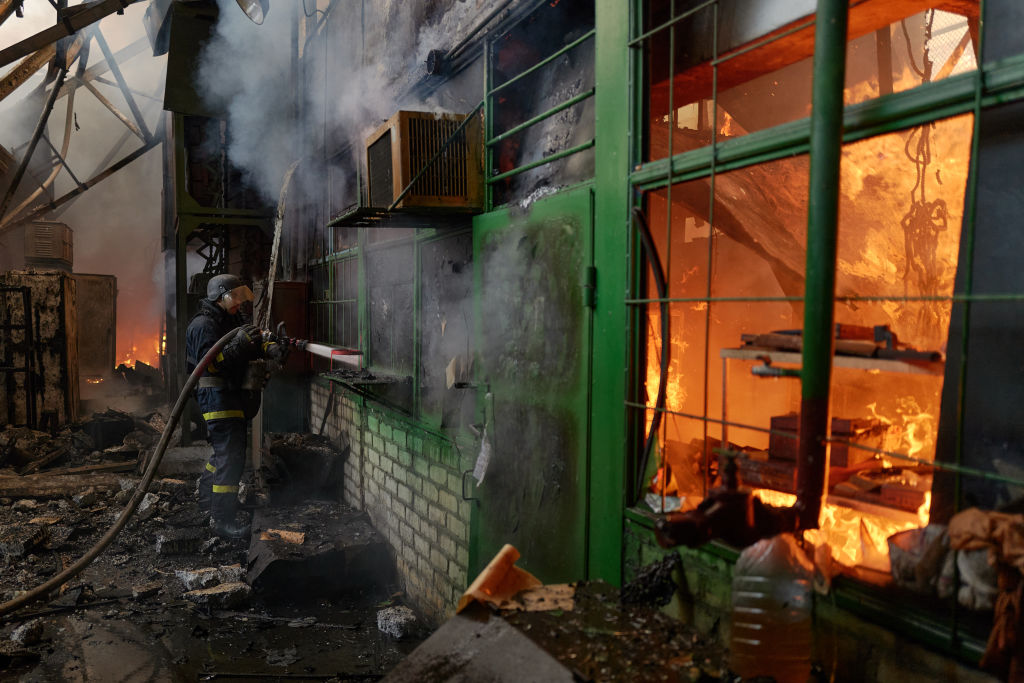Russia’s consulate in the Polish city of Gdańsk has been closed in retaliation for explosions on railway lines, Poland’s foreign minister Radosław Sikorski announced.
The Polish authorities allege the attacks over the weekend of November 15-16 were carried out by Russian assets.
Today’s decision means all bar one of Russia’s consulates in Poland have now been closed with the only exception being the one in Warsaw.
The move comes in the wake of the discovery on November 16 of sabotage on two parts of a train line running between Warsaw and the eastern city of Lublin.
Poland has put its trust in data from Ukrainian authorities which identified the fingerprints left at the site of the crimes as belonging to two Ukrainian citizens who it regards as Russian assets.
One of those involved was convicted of acts of sabotage against Ukraine on behalf of Russia in May.
The two Ukrainians had reportedly entered Poland from Belarus earlier this autumn and then fled back across the border immediately after the incident.
Sikorski, addressing the Polish parliament today, pointed the finger firmly at Russia and called the incident on Polish railways a “terrorist act”.
“Russia not only has not stopped but is escalating these attacks. When the intention behind espionage and sabotage activities is to cause human casualties, then we are no longer dealing with sabotage, but rather with State terror,” said the foreign minister.
“Therefore, although this will not be our full response, I have already decided to withdraw consent for the operation of the Russian consulate, the last [bar] one, in Gdańsk,” he added.
He added, though: “We are not planning to break off diplomatic relations with Russia, just as other countries on whose territory acts of sabotage or terrorism have taken place do not break them.”
Sikorski also said Poland would encourage its allies to restrict the movements of Russian diplomats within the European Schengen area. He said an estimated 40 per cent of such staff perform tasks that are “incompatible” with diplomatic status.
In response to Sikorski’s remarks, Russian President Vladimir Putin’s spokesman, Dmitry Peskov, said they were a further sign that “relations with Poland have completely collapsed for which one can only express regret”.
Russian foreign minister spokeswoman Maria Zakharova, meanwhile, added: “As a reciprocal measure, the Russian side will reduce Poland’s diplomatic and consular presence in Russia.”
Last year, Sikorski ordered the closure of the Russian consulate in Poznań in retaliation for an alleged Russian campaign of sabotage and cyberwarfare against Poland.
In May this year he closed the Russian consulate in Kraków after Poland accused Moscow of being behind a fire that destroyed a large Warsaw shopping Centre.
Polish-Russian relations have been at rock bottom since the Kremlin began its actions against Ukraine in 2014. The Poles have been one of Ukraine’s closest allies and view Russia as a threat to their own security.
Warsaw and Moscow disagree bitterly over post-Second World War history, with Russia believing it liberated Poland from German Nazi occupation whereas the Poles view the Russian occupation as the introduction of Communism and subservience to the USSR.
Russia resented Poland joining NATO in 1999 and what it now sees as Polish interference in Ukrainian politics, which it views as being hostile to Moscow.





